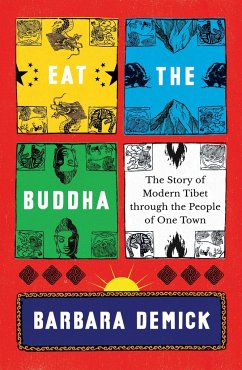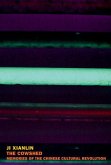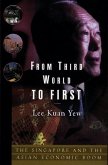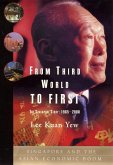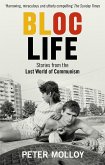From the Samuel Johnson Prize-winning author of Nothing to Envy, a riveting, rich portrait of 21st Century Tibetan life lived in the shadow of modern China, through the stories from one Tibetan community. She creates a vivid, intimate and utterly gripping portrait of these lives and the challenges they face today.
Hinweis: Dieser Artikel kann nur an eine deutsche Lieferadresse ausgeliefert werden.
Hinweis: Dieser Artikel kann nur an eine deutsche Lieferadresse ausgeliefert werden.
Outstanding . . . a book not only about modern Tibet but one that helps explain the current, poisonous moment in China. Financial Times
[Demick s] method is programmatic openness, deep listening, a willingness to be waylaid; the effect, a prismatic picture of history as experienced and understood by individuals in their full amplitude and idiosyncrasy. Parul Sehgal, The New York Times
This remarkable book offers a unique insight into Tibet's plight, allowing the reader to understand what it is like for its people to be tossed about in a political storm they neither want nor understand. Daily Mail
You simply cannot understand China without reading Barbara Demick on Tibet. Her work is fair-minded, chilling, awe-inspiringly rigorous, and as vivid as cinema. Evan Osnos, author of Age of Ambition
Barbara Demick has produced an elegiac narrative of a frontier town that is a hotbed of resistance on the Tibetan plateau. With novelistic depth and through characteristically painstaking research, Demick offers a poignant reminder of the enduring power of memory to illuminate untold histories. Tsering Shakya, author of The Dragon in the Land of Snows
Barbara Demick s new book is essential reading for anyone interested in China and Tibet. The reporting is rich, the writing is beautiful, and the stories will stay with you. I couldn t put it down. John Pomfret, author of The Beautiful Country and the Middle Kingdom
Deeply and meticulously researched, Eat the Buddha tells the story of the beautiful area of eastern Tibet . . . Demick is to be given highest honors for her unflinching account, and her readers will be rewarded with a transformative encounter with the real lives of some extraordinary people. Robert A. F. Thurman, Jey Tsong Khapa Professor Emeritus, Columbia University
Demick provides the missing human dimension in coverage of twenty-first-century Tibet, including the legacy of resistance that has engendered tragic protests by self-immolation, and all the anguish and paradoxes of lives heavily surveilled by the Chinese government, yet largely invisible to the greater world. Booklist
[Demick s] method is programmatic openness, deep listening, a willingness to be waylaid; the effect, a prismatic picture of history as experienced and understood by individuals in their full amplitude and idiosyncrasy. Parul Sehgal, The New York Times
This remarkable book offers a unique insight into Tibet's plight, allowing the reader to understand what it is like for its people to be tossed about in a political storm they neither want nor understand. Daily Mail
You simply cannot understand China without reading Barbara Demick on Tibet. Her work is fair-minded, chilling, awe-inspiringly rigorous, and as vivid as cinema. Evan Osnos, author of Age of Ambition
Barbara Demick has produced an elegiac narrative of a frontier town that is a hotbed of resistance on the Tibetan plateau. With novelistic depth and through characteristically painstaking research, Demick offers a poignant reminder of the enduring power of memory to illuminate untold histories. Tsering Shakya, author of The Dragon in the Land of Snows
Barbara Demick s new book is essential reading for anyone interested in China and Tibet. The reporting is rich, the writing is beautiful, and the stories will stay with you. I couldn t put it down. John Pomfret, author of The Beautiful Country and the Middle Kingdom
Deeply and meticulously researched, Eat the Buddha tells the story of the beautiful area of eastern Tibet . . . Demick is to be given highest honors for her unflinching account, and her readers will be rewarded with a transformative encounter with the real lives of some extraordinary people. Robert A. F. Thurman, Jey Tsong Khapa Professor Emeritus, Columbia University
Demick provides the missing human dimension in coverage of twenty-first-century Tibet, including the legacy of resistance that has engendered tragic protests by self-immolation, and all the anguish and paradoxes of lives heavily surveilled by the Chinese government, yet largely invisible to the greater world. Booklist
Barbara Demick is a reporter of impressive tenacity and thoroughness

